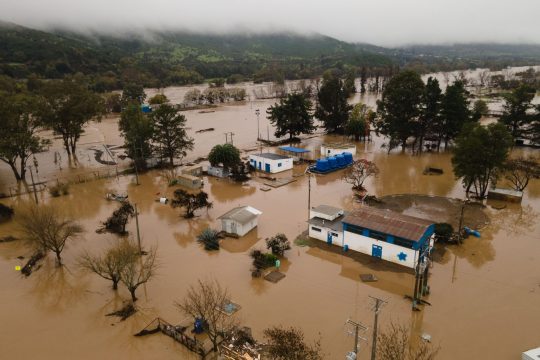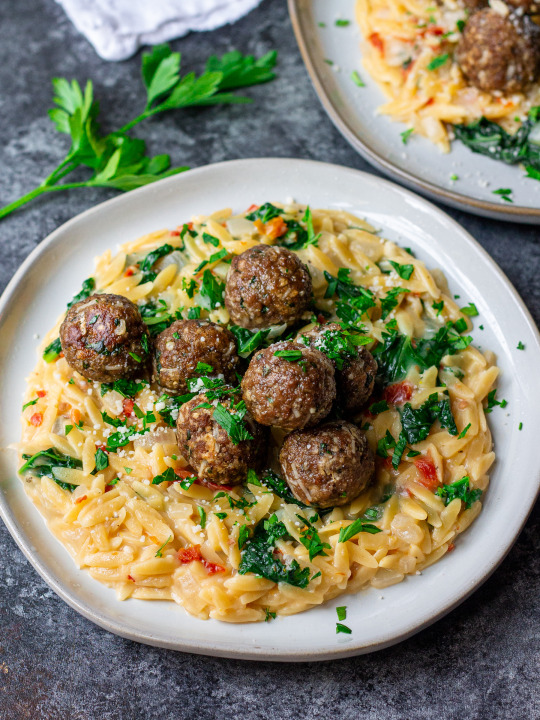#global foods
Explore tagged Tumblr posts
Text
Fish and Chips’ Surprising Jewish History. Jamie Oliver confirmed it!
You may be surprised to learn that fish and chips, though wildly popular in England for what seems like eternity, was actually a specialty of the Portuguese Sephardic Jews who fled the Inquisition in the 16th century and found refuge in the British Isles. Celebrity Chef Jamie Oliver referred to this recently in an article in the New York Times, adding that, “Dishes evolve, impacted by trade, war, famine and a hundred other forces.”

Among those “other forces” are dishes born of religious ritual. For observant Jews, fish is pareve, a neutral food in kosher terms, thus an easy way to avoid treyf (non-kosher food) and possibly include dairy in the same meal. It was especially important for Marranos, the so-called crypto-Jews, who pretended to be Christian during the Inquisition. They ate fish on Fridays, when meat was forbidden by the Church, and also saved some to eat cold the next day at lunch, to avoid cooking on Shabbat.
Frying was natural for Jewish home cooks — think of latkes and sufganyiot — and as the Jewish community began to flourish in England, it spurred a taste for its beloved fried, battered fish throughout the country. According to Claudia Roden’s The Book of Jewish Food, Thomas Jefferson tried some on a trip to London and noted that he ate “fish in the Jewish fashion” during his visit. Alexis Soyer, a French cook who became a celebrated chef in Victorian England included a recipe for “Fried Fish, Jewish Fashion” in the first edition of his cookbook A Shilling Cookery for the People (1845). Soyer’s recipe notes that the “Jewish manner” includes using oil rather than meat fat (presumably lard), which made the dish taste better, though also made it more expensive.
There’s some dispute about the where and when of “chips” (what we Americans call French fries and the French call pommes frites). Many historians say that deep-fried, cut-up potatoes were invented in Belgium and, in fact, substituted for the fish during hard times. The first time the word “chips” was used was in Charles Dickens’ A Tale of Two Cities in 1859: “husky chips of potato, fried with some reluctant drops of oil.”
The official pairing of fish and chips didn’t happen until a few years later, though. Although there are some who dispute it, most authorities say that it is thanks to a Jewish cook, this time a young Ashkenazi immigrant named Joseph Malin, who opened the first British chippy, AKA fish and chip shop, in London in 1863. The shop was so successful it remained in business until the 1970s.
Who could foresee that fearful Jewish immigrants hiding their true religion and practicing in secret would be responsible for creating one of the most iconic dishes in the U.K.? The down-home dish that Winston Churchill claimed help the British defeat the Nazis, the comfort food that George Orwell said helped keep the masses happy and “averted revolution.” The dish, by the way, that was among the only foods never rationed during wartime because the British government believed that preserving access to it was a way of keeping up morale. A dish that continues to be a mainstay of the British diet.
Think about that the next time you find yourself feasting on this centuries-old — Jewish? British? — recipe.
These days, some restaurants are putting a new spin on fish and chips. Almond crusted. Baked instead of fried. Quinoa coated. Sweet potato fries instead of regular. And those are all fine; as Oliver says, “Dishes evolve.” But plain old fish and chips endures and probably always will. Good recipes usually do.
H/T : @scartale-an-undertale-au
Naveed Anjum
#Jews#crypto jews#jewish cuisine#fish and chips#israel#secular-jew#jewish#judaism#israeli#jerusalem#diaspora#secular jew#secularjew#islam#global cuisine#global foods#cooking#home cooking#history of food#fish n chips#marrano#jamie oliver#chippy#England#London#Britain
310 notes
·
View notes
Text
Red Lobster was killed by private equity, not Endless Shrimp

For the rest of May, my bestselling solarpunk utopian novel THE LOST CAUSE (2023) is available as a $2.99, DRM-free ebook!

A decade ago, a hedge fund had an improbable viral comedy hit: a 294-page slide deck explaining why Olive Garden was going out of business, blaming the failure on too many breadsticks and insufficiently salted pasta-water:
https://www.sec.gov/Archives/edgar/data/940944/000092189514002031/ex991dfan14a06297125_091114.pdf
Everyone loved this story. As David Dayen wrote for Salon, it let readers "mock that silly chain restaurant they remember from their childhoods in the suburbs" and laugh at "the silly hedge fund that took the time to write the world’s worst review":
https://www.salon.com/2014/09/17/the_real_olive_garden_scandal_why_greedy_hedge_funders_suddenly_care_so_much_about_breadsticks/
But – as Dayen wrote at the time, the hedge fund that produced that slide deck, Starboard Value, was not motivated by dissatisfaction with bread-sticks. They were "activist investors" (finspeak for "rapacious assholes") with a giant stake in Darden Restaurants, Olive Garden's parent company. They wanted Darden to liquidate all of Olive Garden's real-estate holdings and declare a one-off dividend that would net investors a billion dollars, while literally yanking the floor out from beneath Olive Garden, converting it from owner to tenant, subject to rent-shocks and other nasty surprises.
They wanted to asset-strip the company, in other words ("asset strip" is what they call it in hedge-fund land; the mafia calls it a "bust-out," famous to anyone who watched the twenty-third episode of The Sopranos):
https://en.wikipedia.org/wiki/Bust_Out
Starboard didn't have enough money to force the sale, but they had recently engineered the CEO's ouster. The giant slide-deck making fun of Olive Garden's food was just a PR campaign to help it sell the bust-out by creating a narrative that they were being activists* to save this badly managed disaster of a restaurant chain.
*assholes
Starboard was bent on eviscerating Darden like a couple of entrail-maddened dogs in an elk carcass:
https://web.archive.org/web/20051220005944/http://alumni.media.mit.edu/~solan/dogsinelk/
They had forced Darden to sell off another of its holdings, Red Lobster, to a hedge-fund called Golden Gate Capital. Golden Gate flogged all of Red Lobster's real estate holdings for $2.1 billion the same day, then pissed it all away on dividends to its shareholders, including Starboard. The new landlords, a Real Estate Investment Trust, proceeded to charge so much for rent on those buildings Red Lobster just flogged that the company's net earnings immediately dropped by half.
Dayen ends his piece with these prophetic words:
Olive Garden and Red Lobster may not be destinations for hipster Internet journalists, and they have seen revenue declines amid stagnant middle-class wages and increased competition. But they are still profitable businesses. Thousands of Americans work there. Why should they be bled dry by predatory investors in the name of “shareholder value”? What of the value of worker productivity instead of the financial engineers?
Flash forward a decade. Today, Dayen is editor-in-chief of The American Prospect, one of the best sources of news about private equity looting in the world. Writing for the Prospect, Luke Goldstein picks up Dayen's story, ten years on:
https://prospect.org/economy/2024-05-22-raiding-red-lobster/
It's not pretty. Ten years of being bled out on rents and flipped from one hedge fund to another has killed Red Lobster. It just shuttered 50 restaurants and declared Chapter 11 bankruptcy. Ten years hasn't changed much; the same kind of snark that was deployed at the news of Olive Garden's imminent demise is now being hurled at Red Lobster.
Instead of dunking on free bread-sticks, Red Lobster's grave-dancers are jeering at "Endless Shrimp," a promotional deal that works exactly how it sounds like it would work. Endless Shrimp cost the chain $11m.
Which raises a question: why did Red Lobster make this money-losing offer? Are they just good-hearted slobs? Can't they do math?
Or, you know, was it another hedge-fund, bust-out scam?
Here's a hint. The supplier who provided Red Lobster with all that shrimp is Thai Union. Thai Union also owns Red Lobster. They bought the chain from Golden Gate Capital, last seen in 2014, holding a flash-sale on all of Red Lobster's buildings, pocketing billions, and cutting Red Lobster's earnings in half.
Red Lobster rose to success – 700 restaurants nationwide at its peak – by combining no-frills dining with powerful buying power, which it used to force discounts from seafood suppliers. In response, the seafood industry consolidated through a wave of mergers, turning into a cozy cartel that could resist the buyer power of Red Lobster and other major customers.
This was facilitated by conservation efforts that limited the total volume of biomass that fishers were allowed to extract, and allocated quotas to existing companies and individual fishermen. The costs of complying with this "catch management" system were high, punishingly so for small independents, bearably so for large conglomerates.
Competition from overseas fisheries drove consolidation further, as countries in the global south were blocked from implementing their own conservation efforts. US fisheries merged further, seeking economies of scale that would let them compete, largely by shafting fishermen and other suppliers. Today's Alaskan crab fishery is dominated by a four-company cartel; in the Pacific Northwest, most fish goes through a single intermediary, Pacific Seafood.
These dominant actors entered into illegal collusive arrangements with one another to rig their markets and further immiserate their suppliers, who filed antitrust suits accusing the companies of operating a monopsony (a market with a powerful buyer, akin to a monopoly, which is a market with a powerful seller):
https://www.classaction.org/news/pacific-seafood-under-fire-for-allegedly-fixing-prices-paid-to-dungeness-crabbers-in-pacific-northwest
Golden Gate bought Red Lobster in the midst of these fish wars, promising to right its ship. As Goldstein points out, that's the same promise they made when they bought Payless shoes, just before they destroyed the company and flogged it off to Alden Capital, the hedge fund that bought and destroyed dozens of America's most beloved newspapers:
https://pluralistic.net/2021/10/16/sociopathic-monsters/#all-the-news-thats-fit-to-print
Under Golden Gate's management, Red Lobster saw its staffing levels slashed, so diners endured longer wait times to be seated and served. Then, in 2020, they sold the company to Thai Union, the company's largest supplier (a transaction Goldstein likens to a Walmart buyout of Procter and Gamble).
Thai Union continued to bleed Red Lobster, imposing more cuts and loading it up with more debts financed by yet another private equity giant, Fortress Investment Group. That brings us to today, with Thai Union having moved a gigantic amount of its own product through a failing, debt-loaded subsidiary, even as it lobbies for deregulation of American fisheries, which would let it and its lobbying partners drain American waters of the last of its depleted fish stocks.
Dayen's 2020 must-read book Monopolized describes the way that monopolies proliferate, using the US health care industry as a case-study:
https://pluralistic.net/2021/01/29/fractal-bullshit/#dayenu
After deregulation allowed the pharma sector to consolidate, it acquired pricing power of hospitals, who found themselves gouged to the edge of bankruptcy on drug prices. Hospitals then merged into regional monopolies, which allowed them to resist pharma pricing power – and gouge health insurance companies, who saw the price of routine care explode. So the insurance companies gobbled each other up, too, leaving most of us with two or fewer choices for health insurance – even as insurance prices skyrocketed, and our benefits shrank.
Today, Americans pay more for worse healthcare, which is delivered by health workers who get paid less and work under worse conditions. That's because, lacking a regulator to consolidate patients' interests, and strong unions to consolidate workers' interests, patients and workers are easy pickings for those consolidated links in the health supply-chain.
That's a pretty good model for understanding what's happened to Red Lobster: monopoly power and monopsony power begat more monopolies and monoposonies in the supply chain. Everything that hasn't consolidated is defenseless: diners, restaurant workers, fishermen, and the environment. We're all fucked.
Decent, no-frills family restaurant are good. Great, even. I'm not the world's greatest fan of chain restaurants, but I'm also comfortably middle-class and not struggling to afford to give my family a nice night out at a place with good food, friendly staff and reasonable prices. These places are easy pickings for looters because the people who patronize them have little power in our society – and because those of us with more power are easily tricked into sneering at these places' failures as a kind of comeuppance that's all that's due to tacky joints that serve the working class.

If you'd like an essay-formatted version of this post to read or share, here's a link to it on pluralistic.net, my surveillance-free, ad-free, tracker-free blog:
https://pluralistic.net/2024/05/23/spineless/#invertebrates
#pluralistic#bust-outs#private equity#pe#red lobster#olive garden#endless shrimp#class warfare#debt#looters#thai union group#enshittification#golden gate#monopsony#darden#alden global capital#Fortress Investment Group#food#david dayen#luke goldstein
6K notes
·
View notes
Text
Good News for Sustainable Rice Cultivation
As you might imagine, rice is a very water-hungry crop and currently uses about a third of global freshwater--the cultivation of rice also produces 12% of global methane emissions.
New breakthroughs from researchers in Chile, Chine, and Sweden have developed one variety of rice that uses 50% less water and another that can reduce methane emissions by 70%.
For a staple crop that is produced in such massive numbers, this is a really huge deal both for preserving resources and for food security.
Source--Fix the News
#sustainable agriculture#agricultural research#sustainable rice#sustainable farming#climate change#global warming#environment#hope#good news#ecology#methane emissions#methane#hopepunk#food security#water use#water preservation
604 notes
·
View notes
Text
"A recent World Meteorological Organization report called heat waves the “deadliest meteorological hazard” from 2015 to 2019, affecting people living on all continents, and setting new national heat records in many regions.
Canada’s top weather event in 2021 was British Columbia’s record-breaking heat, according to Environment and Climate Change Canada. The temperature in Lytton, B.C., hit 49.6 C on June 29. The following day a wildfire destroyed 90 per cent of the town, killing two people and displacing 1,200 others.
Heat waves also exacerbate existing health issues, including cardiovascular and respiratory disease. They’re associated with increased hospital admissions, psychological stress and aggressive behavior, as well as excess mortality.
During heat waves, the highest temperatures are often found in urbanized areas. Urbanization is almost always associated with an increase in paved, impervious areas, and often a decrease in greenery. Concrete and asphalt roads, and other built materials readily absorb, store and release heat, raising city temperatures, a phenomenon called the urban heat island.
Many studies have shown that urban forests can reduce the urban heat island, and many policies focus their attention on large green spaces.
Small green spaces, such as yards, rooftops and small parcels of undeveloped land, can make impressive contributions to lowering urban heat, but they are often overlooked when developing strategies for urban cooling.
The effect of small green spaces
Cities rarely have the opportunity to add large green spaces to help counter the effects of heatwaves. Smaller vegetated spaces, however, can still meaningfully decrease local land temperatures.
Small green spaces, such as yards, rooftops and small parcels of undeveloped land, can make impressive contributions to lowering urban heat, but they are often overlooked when developing strategies for urban cooling.
A recent study in Adelaide, Australia, found that tree canopy cover and, to a lesser extent, grass cover decreased local daytime surface temperatures by up to 6 C during extreme summer heat conditions. Further inland, suburban yards and gardens can decrease local surface temperatures up to 5 C.
At a quite small scale, on the order of tens of square metres, trees reduced daytime surface temperatures twice as much as grass cover. But grass and other small, low-lying plants, grow relatively quickly, compared to trees.
Cities should adopt short-term and long-term strategies to respond to extreme heat, including the replacement of paved and impervious surfaces with grasses and turf, and increasing tree plantings to boost canopy coverage.
Amplifying the cooling effect
Furthermore, when managing small green spaces, city planners and foresters can select tree species based on their ability to cool the environment. Green spaces with a high diversity of tree species have a greater cooling effect in spring, summer and fall. They also have a larger maximum drop in temperature in the summer, compared to spaces that are less diverse.
For example, tree canopies with large leaves and high transpiration rates — the evaporation of water from plants occurring at the leaves — could provide more cooling.
Planting a variety of species, of different heights, can have a larger cooling effect than tall trees alone.
The structure of green space may also influence its cooling efficiency. In summer, a plant community with multiple layers of trees, shrubs and herbs can further decrease air temperature by 1 C on a sunny day and 0.5 C on a cloudy day, compared with an area only dominated by tall trees...
But overall, trees usually have a stronger effect on cooling than grass. Planting trees in groups, not individually or in lines, is recommended for regulating the microclimate (local climate conditions near the Earth’s surface).
Small green spaces can offer a lot of summer cooling in cities. And cities can learn to manage the configuration of small green spaces better to get more cooling benefits and minimize the trade-offs."
-via GoodGoodGood, July 4, 2024
#green space#urban#urban landscape#urban forest#urban green spaces#food forest#permaculture#gardening#microclimate#cooling#conversation#global warming#climate change#climate action#solarpunk#rooftop garden#ecopunk#meterology#ecology#ecosystems#environmental science#plant trees#good news#hope
747 notes
·
View notes
Text
Coming back after being almost a week without electricity, phone, and internet connection. Huge storms with lightning and rain, and winds. We have never have winds like that here and the roof of so many houses were ripped off, stuff flying, etc. All this bc global warming, and the deforestation and mining in our lands. At this rate, in 5 years we will have tornadoes, a thing we have never ever have here. Nor our lands, infrastructures, states, and culture are prepared for this. Areas of the country are devastated, ppl have died, many are without electricity nor Internet connection so they are isolated. The houses are flooding with water, and the ones that not, are leaking from the ceiling. Too many neighbours and compatriots don't have roofs and the streets are full of fallen trees and pieces of roof material, no electricity, no signal, food rotting, but suffering at the same time for the cold of this terrible winter, and trying to do something, patching even when its gonna go to hell when the storm comes again this next days. More than 33,200 people affected and 41,500 isolated due to 5 days of rain and windstorms. In just a couple of days there were 170,000 homes left without power due to wind and rainstorms and even more as time went by.






If u want to help me to fix the roof, walls, to buy food and being warm this winter please check my PayPal. If u can't donate, please reblog bc thats the only way to make this being seen by ppl thus receiving help. I'm really not being able to keep living like this, i can no longer cope, so please share.
Here are in my PayPal or MACH . I took the kofi link bc they were charging me a fee.
Please, educate about global warming and the effects on Global South, specially for working class, chronically ill, autistic, disable, and long covid survivor ppl like myself.
Edit: I added links and pics
Edit: the weather is better (is finally spring at this current date 24th nov), but I still need to fix were I live/sleep bc the walls are broken and one of the walls is not a wall, but like 1cm wide stuff and all was bad build so even the door is twisted and dont work correctly, there is black mold that i think is damaging my ears, the paint is falling, the lamp has fallen, everything is broken and ugly, etc. I still need to buy food, meds, and everything so please, please, share or donate if you could. I don't want to survive like this and here, no one mask even when they were the ones giving me covid and they have making me also catch flu the other day bc they cogh over everything and don't care if they kill me, they are abusive and really violent people and are working to put me and everyone in danger. I dont even want to be in my country bc we will have a dictatorship soon, but I have nowhere else to go nor money to migrate (i need like $10.537 dollars or € 9.760,95 euros to pay all the documents, the bank money I have to show to prove I am a human being deserver of rights, the tickets, rent money and stuff to migrate).
I currently (date 14 Jan 2025) have $100 dollars donated (coz i spent 40 in food and meds this past month)
I know i will die here, but at least help me to survive in a less dehumanising way.
Edit: tumblr has blocked me from recive or send messages from the chat and comment of posts, so if you are trying to reach throughout there I can't see it, sorry, I'm cut from any communication (cant even see past messages from chat or asks), except send asks. I'm waiting that tumblr do something, but still hasn't even answered the help file I sent to them.
#global warming#shot of stress#signal boost#support request#support one another#artist in need#disabled#chronic illness#community#health#housing#life#ecology#trans support#covid survivor#long covid#cpunk#autistic#actually autistic#latino#latinoamérica#food insecurity#suicideprevention#emergency#house#living#natural disasters#floods#political exile#political persecution
763 notes
·
View notes
Text
#good news#environmentalism#science#indigenous peoples#indigenous food systems#food sovereignty#climate crisis#global climate change#climate news#climate action#indigenous issues#indigenous sovereignty#Siċaŋġu Nation#lakota#native american#climate change#usa#nature#environment#bison#mushrooms#foraging#foragecore#foraged food
158 notes
·
View notes
Text
All bakeries in Gaza have been forced to close down due to Israel’s blockade on food and essentials. Abdel Nasser al-Ajrami, the head of Gaza’s bakery owners’ association, announced on Tuesday that bakeries had shut as a result of lack of fuel and flour. “The World Food Programme [WFP] informed us today that flour had run out in its warehouses,” Ajrami said. “Bakeries will no longer operate until the [Israeli] occupation opens the crossings and allows the necessary supplies to enter.” The WFP supports the running of 18 bakeries in the enclave. Their closures will worsen a starvation and malnutrition crisis that has devastated Gaza’s two million residents.
Continue Reading.
87 notes
·
View notes
Text

30-Minute Herby Meatballs With Creamy Kale Orzo
#eatfigsnotpigs#italian#dinner#savoury#meatballs#orzo#kale#vegan#vegetarian#food#recipe#recipes#climate change#global warming#sustainability#environment#environmentalism#climate action#climate crisis
234 notes
·
View notes
Text
Things Biden and the Democrats did, this week #22
June 7-14 2024
Vice-President Harris announced that the Consumer Financial Protection Bureau is moving to remove medical debt for people's credit score. This move will improve the credit rating of 15 million Americans. Millions of Americans struggling with debt from medical expenses can't get approved for a loan for a car, to start a small business or buy a home. The new rule will improve credit scores by an average of 20 points and lead to 22,000 additional mortgages being approved every year. This comes on top of efforts by the Biden Administration to buy up and forgive medical debt. Through money in the American Rescue Plan $7 billion dollars of medical debt will be forgiven by the end of 2026. To date state and local governments have used ARP funds to buy up and forgive the debt of 3 million Americans and counting.
The EPA, Department of Agriculture, and FDA announced a joint "National Strategy for Reducing Food Loss and Waste and Recycling Organics". The Strategy aimed to cut food waste by 50% by 2030. Currently 24% of municipal solid waste in landfills is food waste, and food waste accounts for 58% of methane emissions from landfills roughly the green house gas emissions of 60 coal-fired power plants every year. This connects to $200 million the EPA already has invested in recycling, the largest investment in recycling by the federal government in 30 years. The average American family loses $1,500 ever year in spoiled food, and the strategy through better labeling, packaging, and education hopes to save people money and reduce hunger as well as the environmental impact.
President Biden signed with Ukrainian President Zelenskyy a ten-year US-Ukraine Security Agreement. The Agreement is aimed at helping Ukraine win the war against Russia, as well as help Ukraine meet the standards it will have to be ready for EU and NATO memberships. President Biden also spearheaded efforts at the G7 meeting to secure $50 billion for Ukraine from the 7 top economic nations.
HHS announced $500 million for the development of new non-injection vaccines against Covid. The money is part of Project NextGen a $5 billion program to accelerate and streamline new Covid vaccines and treatments. The investment announced this week will support a clinical trial of 10,000 people testing a vaccine in pill form. It's also supporting two vaccines administered as nasal sprays that are in earlier stages of development. The government hopes that break throughs in non-needle based vaccines for Covid might be applied to other vaccinations thus making vaccines more widely available and more easily administered.
Secretary of State Antony Blinken announced $404 million in additional humanitarian assistance for Palestinians in Gaza, the West Bank and the region. This brings the total invested by the Biden administration in the Palestinians to $1.8 billion since taking office, over $600 million since the war started in October 2023. The money will focus on safe drinking water, health care, protection, education, shelter, and psychosocial support.
The Department of the Interior announced $142 million for drought resilience and boosting water supplies. The funding will provide about 40,000 acre-feet of annual recycled water, enough to support more than 160,000 people a year. It's funding water recycling programs in California, Hawaii, Kansas, Nevada and Texas. It's also supporting 4 water desalination projects in Southern California. Desalination is proving to be an important tool used by countries with limited freshwater.
President Biden took the lead at the G7 on the Partnership for Global Infrastructure and Investment. The PGI is a global program to connect the developing world to investment in its infrastructure from the G7 nations. So far the US has invested $40 billion into the program with a goal of $200 billion by 2027. The G7 overall plans on $600 billion by 2027. There has been heavy investment in the Lobito Corridor, an economic zone that runs from Angola, through the Democratic Republic of Congo, to Zambia, the PGI has helped connect the 3 nations by rail allowing land locked Zambia and largely landlocked DRC access Angolan ports. The PGI also is investing in a $900 million solar farm in Angola. The PGI got a $5 billion dollar investment from Microsoft aimed at expanding digital access in Kenya, Indonesia, and Malaysia. The PGI's bold vision is to connect Africa and the Indian Ocean region economically through rail and transportation link as well as boost greener economic growth in the developing world and bring developing nations on-line.
#Thanks Biden#Joe Biden#us politics#american politics#Medical debt#debt forgiveness#climate change#food waste#Covid#covid vaccine#Gaza#water resources#global development#Africa#developing countries
185 notes
·
View notes
Text
Two men who were instrumental in creating a global seed vault designed to safeguard the world's agricultural diversity will be honoured as the 2024 World Food Prize laureates.

Cary Fowler, the US special envoy for Global Food Security, and Geoffrey Hawtin, an agricultural scientist from the UK and executive board member at the Global Crop Diversity Trust, will be awarded the annual prize and split a $500,000 (€464,000) award. In 2004, Fowler and Hawtin led the effort to build a backup vault of the world's crop seeds in a place where it could be safe from political upheaval and environmental changes.

The facility was built into the side of a mountain on a Norwegian island in the Arctic Circle where temperatures could ensure seeds would be preserved.
The Svalbard Global Seed Vault - also known as the 'Doomsday vault' - opened in 2008 and now holds 1.25 million seed samples from nearly every country in the world.
#solarpunk#solar punk#indigenous knowledge#community#reculture#seed vault#svalbard#global food prize#preserving the future
160 notes
·
View notes
Text
you now have the chance to prove yourself. please read about @aisha2o 's campaign:
Aisha's mother needs surgery URGENTLY but they are EXTREMELY LOW on funds. you now have the chance of saving her life and this family through your support.
DONATE what you can, even if it's small it's better than nothing and SHARE this post, follow Aisha's account and support her in any way you can. Please, I beg of you, find some humanity in your heart.
(verified by @bilal-salah0 + chuffed is a reliable site)
DO SOMETHING. DON'T INTERACT WITH THE POLL WITHOUT DOING ANYTHING ELSE.
#gaza#free Gaza#free Palestine#Palestine#help#please help#marvel#daredevil#severance#mcu#DC comics#Minecraft#cinema#artists on Tumblr#animanga#manga#anime#animation#dungeon meshi#dungeons and dragons#dimension 20#webtoon#food#fashion#us politics#current events#global politics#climate change#hopepunk#hopecore
29 notes
·
View notes
Text
I included some highlights from the article here, but I highly recommend reading this whole thing.
We hear so much about how wildfires that move into towns or cities devastate communities--but once the blazes have finally been extinguished the news usually moves on to the next crisis and we don't get to hear about how these communities and outside helpers rally together to rebuild afterwards. Including regrowing the trees and gardens that help provide shade and food security to neighborhoods.
From the article:
"The Altadena Seed Library, a network of seed exchange boxes, is leading the charge. Raj’s project began in 2021, with several little seed libraries stationed around the community. Seed libraries mimic regular libraries, but instead of books, people check out (and use) envelopes of seeds for free. Now, Raj and other volunteers are working on a game plan for regrowing the lawns, gardens, and urban green spaces that combat shade inequity and increase food sovereignty in their neighborhood — and looking to learn from other communities that have also seen their landscapes drastically altered by destructive wildfires. Donated seeds and tools are pouring in from locals and places around the country, as well as compost, pots, trees, and personal protective equipment for people cleaning up the hazardous waste leftover from burned homes and melted cars. “We’ve had a pretty overwhelming response,” Raj said. “People have been so, so generous.” Individual volunteers and organizations like Club Gay Gardens, a nonprofit in nearby Glendale, are helping sort the donated seeds. [...] Replanting efforts in Paradise, California, where the Camp Fire killed 85 people in 2018, and Lahaina, Hawai‘i, where a wildfire killed 102 people in 2023, offer inspiration as to what responsible reseeding can look like post-fire. Wildfire survivors from up and down the West Coast have already reached out to Raj, offering to help Altadena. “It’s so unfortunate to be bonded in that way,” Raj said. “It also feels really beautiful that those connections can grow out of something so tragic.” The Federal Emergency Management Agency helped test for soil toxicity in Paradise, eventually scraping the contaminated top layers away. But replanting efforts were left to residents. “None of this would have happened if it weren’t for these community groups that all came together,” said Jennifer Peterson, a Paradise local who saw her house, plus a seed library and two community gardens she worked on, destroyed. Peterson and other community members worked hard to safely reestablish old food sources. In 2020, several groups and 300 volunteers joined forces to rebuild — in one day — a nonprofit arts and culture center whose public gardens provide compost, seeds, and produce for free. Grant money allowed organizations like the Butte County Local Food Network to prepare 150 garden boxes and deliver them to people’s homes, complete with new soil and plants. Being part of efforts to regrow people’s food — and her front yard, which now teems with native wildflowers whose seeds survived the fire — has helped Peterson heal. “It was kind of like therapy for everybody,” she said. In Lahaina, on Maui, where an estimated 150,000 trees burned, replanting efforts so far have focused on fruit trees that will eventually provide food and shade again, said Duane Sparkman, chair of the Maui County Arborist Committee and cofounder of Treecovery Hawaii, a nonprofit focused on replanting Lahaina. So far, Treecovery Hawaii has raised half a million dollars to purchase trees at full price from local nurseries and give them to families who are rebuilding. The organization has established several hubs to grow more trees, and Sparkman said he’d like to buy a larger nursery space on central Maui. A detailed planting plan created by Maui County lays out what types of trees should get planted on the island, as well as the care they need. Over 200 trees have been planted or are in pots on-site, ready to be put in the ground. That includes a mouthwatering array of fruit trees — mango, jackfruit, starfruit, avocado, citrus, and banana — fragrant plumeria and orchid trees, and native species like wiliwili, milo, koa, and lauhala trees. “Knowing that we’re going to be part of what’s eventually going to be the canopy for our grandchildren is immense for us,” Sparkman said."
#wildfire#wildfire rebuilding#climate change#global warming#hope#hopepunk#solarpunk#gardening#food security#climate resilience#widlfire recovery#community#food garden#environment#ecology#food sovereignty
203 notes
·
View notes
Text
for most of my life I couldn't eat raw tomatoes because my Mouth outright fucking rejected them (it got less severe over the years but in elementary school I once went to a friend's house and their mom made us grilled fish & tomato salad and I decided to try the salad to see if I liked tomatoes yet or not and after exactly one bite of tomato I teared up so hard the mom thought I was choking on a fish bone. then she felt bad and told me I didn't have to eat the salad if I didn't want to and I was like "no I needed to check." anyways.) but then about a year ago something in my taste buds shifted and I Understood raw tomato. I got it. I connected with the tomatoes spiritually. and that spring I ate so much fucking shopska salad that my scent changed. like my sweat smelled completely different. I was 99% tomato. so anyways I'm looking forward to doing that again this year 👍
#truly the one good thing about spring is the return to fresh vegetable...#it's been getting warmer gradually and I'm Already feeling the Spring Fatigue. winter don't go.. we didn't even have proper snow this year.#(it's the global warming)#baba marta save meeee#food tw
22 notes
·
View notes
Text
Microplastics are now a ubiquitous part of our daily physical reality. These minuscule fragments of degrading plastic now suffuse our air, our soil, the food we eat and the water we drink. They’re being detected everywhere researchers look, from Antarctic sea ice to human brains. As scientists develop a better idea of where microplastics are accumulating in the environment, they’re just beginning to understand how these pollutants affect one of the most essential and widespread kingdoms of life on Earth: plants. A new study, published on Monday in the Proceedings of the National Academy of Sciences USA, reveals how microplastics hinder photosynthesis across a wide range of plant species—including crucial food crops. “It’s really scary,” says Marcus Eriksen, a marine scientist at the 5 Gyres Institute, a nonprofit plastic pollution research organization, who was not involved in the study. The researchers found that the presence of microplastics (plastic particles that are less than five millimeters in size) can reduce photosynthesis by as much as 7 to 12 percent, on average. That could range from 6 to 18 percent in terrestrial crops, 2 to 12 percent in marine plants such as seaweed and 4 to 14 percent in freshwater algae. “The exposure to microplastics was not surprising at all,” Eriksen says. “What surprised me was the level of impact.” A generalized reduction in photosynthesis at such a scale could have major implications for the global food supply, according to the study’s researchers.
continue reading
#us#microplastic pollution#global food supply#plant photosynthesis#reduced#food crops#yield reductions
19 notes
·
View notes
Text
The Care Bears, a beloved franchise originating from the 1980s, epitomize the essence of love and friendship, promoting positive values that resonate with audiences of all ages. Each bear, characterized by its unique color and emblem, represents different emotions and virtues, such as caring, sharing, and empathy, which are crucial for fostering strong relationships. Their adventures in the magical land of the Kingdom of Caring emphasize the importance of compassion and understanding, encouraging children and adults alike to embrace kindness in their daily lives. The enduring popularity of the Care Bears reflects a widespread approval of their message, as they continue to inspire generations to spread love and positivity, making the world a better place.
The Care Bears, with their vibrant characters and messages centered around love and friendship, have a significant positive impact on mental health, particularly among children. By promoting themes of empathy, kindness, and emotional expression, they encourage young viewers to understand and articulate their feelings, fostering resilience and emotional intelligence. The show's emphasis on caring for others and oneself can lead to improved self-esteem and social skills, creating a supportive environment that nurtures mental well-being. The overall message of love and community resonates strongly, making the Care Bears a powerful tool in promoting mental health awareness and positivity, and their influence continues to inspire generations with an optimistic outlook on emotional health.









#sweet#kindness#wholesome#cute#love#kawaii#positive mental attitude#soft aesthetic#mental health#healthy living#healthylifestyle#healthyliving#mental health awareness#healthy food#global#heart full of love#love it#i love you#lovers#self love#love and deepspace#love quotes#healthy eating#healthy relationships#healthcare#cuteness#sweetie pie#my sweet angel#cuties#care bears
18 notes
·
View notes
Text
🥖Help Feed Internally Displaced People in Sudan 🍴
The Darfur Victims Support Organization is collaborating with Hope and Haven for Refugees to provide internally displaced Sudanese citizens with food and, if possible, some medical care.
You can help them reach their goal of $100k AUD ($65k USD/€63K EUR) by donating to their campaign:
As of November 11, 2024, they've raised about 1/4 of their goal ($25,720 AUD). Please donate to get them to 100%. If you cannot donate now, share this (and donate later whenever possible).
🌺FREE SUDAN 🌺
#mutual aid#liberation#aid#solidarity#global politics#sudan#eyes on sudan#free sudan#save sudan#food#foodie#darfur#sudan aid#globalization#help#black love#blm#black lives matter#poc#blue sky#arcane#pedro pascal
26 notes
·
View notes